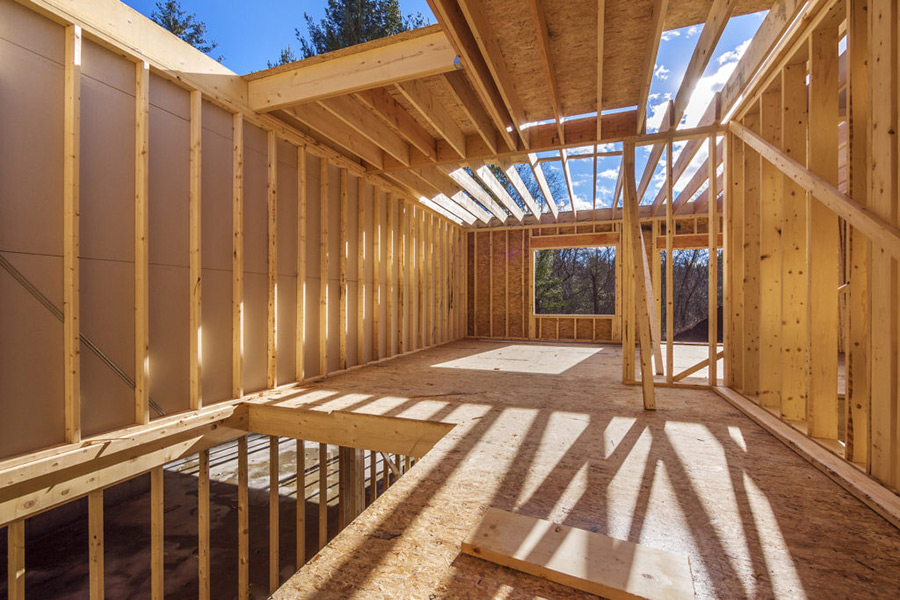
Whether you’re starting a new chapter in a far-off city or embracing a fresh adventure in a different country, long distance moves can be both exciting and daunting. The prospect of relocating your life and belongings across hundreds or even thousands of miles might seem overwhelming, but fear not! With careful planning, a positive mindset, and a few handy tips, your long distance move can become a smooth and memorable journey.
The key to a successful long distance move is thorough planning. Start early by creating a detailed moving checklist. This list should include tasks like sorting through your belongings, notifying relevant parties of your change of address, and scheduling moving services. A well-organized plan will alleviate stress and ensure that nothing important falls through the cracks.
Long distance moves are the perfect opportunity to declutter and minimize your belongings. Go through each room and decide what to keep, donate, or sell. Lightening your load will not only make the packing process easier but also save you money on transportation costs.
Choosing a reliable moving company is crucial for a successful long distance move. Research and read reviews to find a reputable company that suits your needs and budget. Get several quotes and inquire about insurance coverage to ensure your possessions are protected during transit.
When packing for a long distance move, think strategically. Use sturdy boxes and proper packing materials to protect fragile items. Label each box with its contents and the room it belongs to, making unpacking a breeze. Consider packing an “essentials” box with items you’ll need immediately upon arrival, such as toiletries, a change of clothes, and important documents.
Gather important documents like passports, IDs, medical records, and financial paperwork into a secure folder or envelope. Carry these documents with you rather than packing them with your other belongings. This ensures quick access to essential information throughout your journey.
Technology can be your best friend during a long distance move. Use apps to help you track your progress, manage your checklist, and even find local services in your new area. Staying connected through video calls with family and friends can also help ease the emotional aspects of the move.
Before you arrive, take some time to research and explore your new neighborhood online. Familiarize yourself with local amenities, parks, grocery stores, and nearby attractions. This will help you feel more at home once you’ve moved.
On the day of the move, pack a cooler with drinks and snacks to keep you refreshed and energized. Also, pack a first-aid kit with basic essentials in case of any minor mishaps. And don’t forget to pack a set of clothes for the first few days in your new home.
A positive attitude goes a long way in making your long distance move a memorable adventure rather than a stressful ordeal. Embrace the excitement of new beginnings and the opportunities that lie ahead. Remember, every challenge you overcome makes you stronger.
During the moving process, it’s important to take breaks and get enough rest. Moving can be physically and mentally taxing, so make sure to get plenty of sleep and stay hydrated.

Are you ready to embark on a thrilling journey into the world of house flipping? The allure of transforming a run-down property into a lucrative investment is undeniable, but before you jump in, it’s essential to arm yourself with the right knowledge. Flipping a house can be a rewarding venture, but it’s not without its challenges. Here’s a guide to the do’s and don’ts of flipping a house to help you navigate the process successfully.
Remember that mistakes are part of the learning process, so be prepared to adapt and evolve as you gain experience. With the right mindset and a commitment to these do’s and don’ts, you’ll be well on your way to flipping success!

Buying your first home is an exciting milestone, but it can also be overwhelming with numerous considerations to keep in mind. In today’s real estate market, first-time home buyers face unique challenges and opportunities. To help you navigate this complex process successfully, we’ve compiled ten essential tips that every first-time home buyer needs to know today.
Before diving into the home-buying process, ensure you are financially prepared. Review your credit score, set a budget, and save for a down payment and closing costs. Keep in mind that mortgage lenders may have stricter lending criteria, so it’s essential to maintain a good credit score and low debt-to-income ratio.
Stay up-to-date with the current real estate market conditions in your desired area. The market can fluctuate, affecting home prices and availability. Researching market trends will help you make informed decisions and spot potential bargains.
Make a list of your non-negotiables and what you’d like in your dream home. Differentiate between your needs (e.g., number of bedrooms, location, proximity to schools) and wants (e.g., granite countertops, swimming pool). This clarity will help you prioritize and stay focused during the home search.
Getting pre-approved for a mortgage is crucial before house hunting. It gives you a clear idea of how much you can afford and enhances your credibility as a serious buyer in the eyes of sellers. Shop around for the best mortgage rates and terms to secure the most favorable deal.
Partner with an experienced and trustworthy real estate agent who knows the local market inside out. A skilled agent will guide you through the process, negotiate on your behalf, and protect your interests.
Never forgo a professional home inspection. It’s a small investment that can save you from significant headaches later on. A thorough inspection will uncover potential issues and allow you to negotiate repairs or adjustments to the purchase price.
Remember that homeownership entails more than just the mortgage payment. Account for ongoing costs such as property taxes, homeowners insurance, maintenance, and utilities. Create a budget that considers these expenses to avoid financial strain after moving in.
In competitive markets, be prepared to face bidding wars. Multiple offers on desirable properties can drive up the price. Establish a maximum budget and avoid getting caught up in the emotional aspects of bidding to avoid overextending yourself.
Explore government assistance programs aimed at helping first-time home buyers. These programs can offer down payment assistance, favorable interest rates, or tax credits, making homeownership more accessible.
Finally, think about your long-term goals when purchasing your first home. Consider factors like job prospects, family planning, and potential appreciation of the property. Choosing a home that aligns with your future plans will ensure your investment remains valuable for years to come.

Purchasing a new home is undoubtedly an exhilarating milestone in life, but it can also be a roller coaster ride of emotions. The process can often feel overwhelming, leading to significant stress and anxiety. However, with the right strategies and mindset, you can navigate the home buying journey smoothly and efficiently. In this blog, we’ll explore some effective ways to deal with the stress of buying a home, helping you make the experience a positive and rewarding one.
One of the primary reasons for stress during the home buying process is having unrealistic expectations. Understand that finding the perfect home may not be entirely possible, and you might have to make some compromises. Identify your non-negotiables and be prepared to be flexible in other aspects. By setting realistic expectations, you can avoid unnecessary disappointment and stress.
Financial concerns are a major source of stress for home buyers. Before embarking on the home buying journey, review your financial situation thoroughly. Get pre-approved for a mortgage to understand your budget and negotiate with sellers confidently. Being financially prepared will help alleviate stress during the negotiation and closing stages.
A qualified and experienced real estate agent can be your greatest ally in reducing stress while buying a home. They have the expertise to navigate the market, find suitable properties, and handle negotiations on your behalf. A good agent will keep you informed throughout the process, answer your questions, and provide valuable guidance, making the entire journey smoother.
Knowledge is power, especially in the real estate market. Conduct in-depth research about the neighborhoods you’re interested in, property values, local amenities, and market trends. The more informed you are, the better equipped you’ll be to make confident decisions, thus easing stress.
Amidst the hustle and bustle of home buying, it’s crucial to prioritize self-care. Take breaks when needed, practice relaxation techniques, and engage in activities that help you unwind. Exercise, meditate, or spend time with loved ones to reduce stress levels and maintain a healthy perspective throughout the process.
The home buying process rarely goes entirely as planned, and unexpected challenges may arise. To mitigate stress, be mentally prepared for contingencies. Have a backup plan for potential hiccups in negotiations, inspection results, or financing. By anticipating the unexpected, you’ll be more adaptable and less stressed when faced with challenges.
Lean on your support network during the home buying journey. Share your concerns and experiences with friends or family members who have been through the process. Their advice and encouragement can provide comfort and reassurance, making the experience less stressful.
The process of buying a home may be demanding, but it can also be one of the most rewarding ventures of your life. Remember, patience and a positive attitude will go a long way in making this journey a memorable and exciting one. Happy home hunting!

You’ve put your heart and soul into making your house a home, but for some reason, it’s been sitting on the market for far too long. You’ve tried everything – from updating the paint colors to reducing the asking price – yet potential buyers remain elusive. If you find yourself in this frustrating situation, fear not! There could be some underlying reasons why your house isn’t selling.
First impressions matter, and the exterior of your home sets the tone for what lies within. If your house lacks curb appeal, it might be turning away potential buyers before they even step inside. Overgrown bushes, a worn-out front door, or a neglected lawn can be huge turn-offs. Consider enhancing your home’s curb appeal by investing in landscaping, adding a fresh coat of paint to the front door, and ensuring the exterior looks inviting and well-maintained.
When potential buyers walk through the door, they want to envision themselves living in the space, not feel like they’re intruding on someone else’s personal domain. Clutter and excessive personalization can be major distractions. Consider decluttering and depersonalizing your home before listing it on the market. This will allow buyers to imagine how they can make the space their own.
Pricing your home too high can be one of the most significant factors preventing it from selling. While it’s natural to want to get the best value for your property, an inflated price can deter buyers and lead to your house languishing on the market. Consult with a real estate agent to determine a competitive and realistic asking price that reflects the current market conditions.
Aesthetics matter, and outdated décor can be a major drawback for potential buyers. Features like shag carpets, heavily patterned wallpapers, and avocado green appliances may be reminiscent of a bygone era, but they don’t typically appeal to modern buyers. Consider updating your home’s design and décor to make it more appealing to a wider range of potential buyers.
A pre-listing inspection can be an invaluable tool to identify and address potential issues with your property before potential buyers encounter them. Addressing any major problems beforehand can help prevent last-minute negotiations or buyers walking away due to unexpected issues discovered during their own inspection.
Even if your home is a gem, if it’s not marketed effectively, it may not attract the right buyers. Ensure that your real estate agent is using a comprehensive marketing strategy, including professional photography, virtual tours, and targeted online and offline advertising to reach potential buyers.
Location is a critical factor in the real estate market. While you can’t change where your home is situated, you can highlight its advantages and appeal to the right target audience. Be honest about the location’s pros and cons, and focus on the positive aspects that might attract certain buyers, such as proximity to schools, parks, or public transportation.
Sometimes, a lack of interest in your property could be due to an oversaturated market. If there are many similar homes for sale in your area, buyers might have more options to choose from, making it harder for your home to stand out. In such cases, consider unique selling points or incentives to set your property apart.

For many people, the idea of downsizing their home can be daunting. After all, our homes are often seen as a reflection of our success, status, and wealth. However, the truth is that downsizing can have a number of surprising benefits that make it well worth considering. If you’re feeling overwhelmed by the size of your current home or simply want to make a change, take some time to consider whether downsizing might be the right choice for you.
Perhaps the most obvious benefit of downsizing your home is the potential financial savings. A smaller home will typically cost less to purchase, maintain, and run. This means that you’ll have more money left over each month to put towards other things, whether that’s paying off debt, saving for retirement, or simply enjoying life. Another place you’ll save money is on your property taxes. Because square footage is a factor in assessing a home’s value for tax purposes, property taxes are generally lower for smaller homes.
When you have a smaller home, you simply won’t have as much space to accumulate unnecessary clutter. This can be incredibly freeing, as it allows you to focus on the things that truly matter to you. You’ll also be forced to be more intentional about the items you bring into your home, which can help you to cultivate a greater sense of mindfulness and clarity.
Maintaining a large home can be incredibly time-consuming, with all of the cleaning, organizing, and upkeep that goes into it. By downsizing, you’ll be able to free up more time to spend on the things that truly matter to you, whether that’s spending time with family and friends, pursuing hobbies and interests, or simply relaxing and enjoying some downtime.
Large homes require more resources to build, heat, and cool, which can have a significant impact on the environment. By downsizing your home, you’ll be doing your part to reduce your carbon footprint and live a more sustainable lifestyle.
As we age, our homes can become more difficult to maintain and navigate. By downsizing to a smaller home or apartment, you can make it easier to get around and maintain your independence for longer. This can be especially important if you’re looking to age in the comfort of your own home and avoid moving to a retirement community or assisted living facility.
Living in a smaller home or apartment can also help you to feel more connected to your community. You’ll be closer to your neighbors and more likely to run into people when you’re out and about. This can be especially beneficial if you’re looking to make new friends or simply feel more connected to the world around you.

In a world of ever-changing investment opportunities, real estate investment continues to stand out as a reliable and lucrative option. With its stability, potential for long-term growth, and diversification benefits, real estate has retained its position as a solid strategy in today’s dynamic market. In this article, we will explore the reasons why investing in real estate remains a wise decision, even amidst evolving economic landscapes.
Unlike intangible investments like stocks or cryptocurrencies, real estate provides investors with a tangible asset that holds intrinsic value. The physical nature of real estate assets fosters a sense of security and stability. Property values tend to be less volatile compared to other investment classes, making real estate a reassuring choice for risk-averse individuals. Moreover, real estate often appreciates over time, allowing investors to accumulate equity and generate substantial wealth.
Investing in rental properties can yield a consistent cash flow stream. By purchasing properties and leasing them to tenants, real estate investors can benefit from regular rental income. This income not only covers mortgage payments and maintenance costs but also provides a potential source of passive income. The reliable cash flow generated by real estate investments offers financial security and stability, making it an attractive option for long-term investors.
Throughout history, real estate has demonstrated a tendency to appreciate in value over the long term. Although short-term fluctuations are possible, real estate markets have consistently shown resilience and the ability to rebound from downturns. Investors who adopt a patient buy-and-hold strategy can enjoy significant returns as property values increase steadily. Furthermore, strategic location choices and property improvements can amplify the potential for appreciation, resulting in even greater returns on investment.
Real estate offers a unique opportunity to diversify an investment portfolio. By allocating a portion of funds to property, investors reduce exposure to the volatility of other asset classes, such as stocks or bonds. This diversification provides a hedge against economic uncertainties and market fluctuations, allowing for a more balanced and resilient portfolio. Real estate’s low correlation to other investments helps smoothen returns and mitigates risk, making it an excellent addition to an investment strategy.
Real estate investment comes with a range of tax benefits that can enhance overall returns. Rental income is often taxed at a lower rate compared to ordinary income, and investors can deduct various expenses, including property taxes, mortgage interest, and maintenance costs. Additionally, real estate investors may benefit from depreciation deductions, which offset taxable income and potentially reduce tax liability. These tax advantages contribute to the profitability and appeal of real estate as an investment option.
Real estate has historically served as a reliable hedge against inflation. As prices rise, so do property values and rental income. Unlike paper assets like bonds or cash, real estate possesses the unique ability to maintain its value and potentially outpace inflation. This characteristic makes real estate an appealing choice for long-term investors seeking to protect their wealth from eroding purchasing power.

Summer is one of the busiest seasons in the real estate market. With the warm weather, longer days and the school year ending, many people are eager to buy a new home or move into a bigger one. If you are looking to sell your home this summer, there are several things you should do to ensure a successful sale. Here are 5 things to do when selling your home this summer.
The first and most important thing to do when selling your home is to make it attractive to buyers. This involves cleaning, decluttering, and staging your home to showcase its best features. Start by getting rid of any unnecessary items and organizing your belongings. Make sure your home is clean and tidy, and consider hiring a professional cleaner to deep clean your carpets, floors, and walls.
Staging your home is also important. This involves arranging furniture in a way that makes your home feel spacious and inviting. Consider adding fresh flowers or plants, adding some art or decor to the walls, and making sure all of your rooms are well-lit and welcoming.
Pricing your home correctly is crucial when selling in a competitive market. Research the current market conditions in your area, and compare your home to similar homes that have recently sold. Consider working with a real estate agent who can help you set the right price for your home.
In today’s digital age, buyers are more likely to find your home online than in person. That’s why it’s important to use high-quality photos and videos to showcase your home’s best features. Hire a professional photographer or videographer to take photos and videos of your home, and make sure they are well-lit and show your home in the best possible light.
Summer is a busy time for buyers, so it’s important to be flexible with showings. Make sure your home is available to be shown on short notice, and consider hosting open houses on weekends or in the evenings to accommodate busy schedules.
Finally, working with an experienced real estate agent can help you navigate the selling process and ensure a successful sale. A good agent will have a deep understanding of the local market, know how to price your home correctly, and have a network of potential buyers to market your home to. They can also handle negotiations and paperwork on your behalf, making the selling process smoother and less stressful.

If you’re considering making some upgrades to your home, adding a pool might be one of the best investments you can make. Not only does it provide a great space to relax and cool off during hot summer months, but it can also significantly increase your home’s value. Here’s how building a pool can increase your home value.
One of the main reasons that adding a pool can increase your home’s value is that it’s an attractive feature that many homebuyers desire. Pools are great for hosting pool parties and barbecues, and they offer a fun way to stay cool and active during the summer. In fact, according to a survey by the National Association of Realtors, a pool was the third-most-desired outdoor feature among homebuyers.
A well-designed pool can greatly improve the aesthetics of your home’s outdoor space. By integrating the pool with your landscaping and adding features like waterfalls, lighting, and seating areas, you can create an inviting and beautiful oasis that enhances your property’s value.
Another reason why building a pool can increase your home’s value is that it effectively increases your home’s usable space. With a pool, you now have a dedicated outdoor area for relaxation, exercise, and entertainment that you can enjoy for many months out of the year. This can be particularly attractive to families with children who want a safe and fun place to play.
While building a pool can be a significant investment, it can also provide a higher return on investment than other home upgrades. According to a study by the National Association of Realtors, a pool can add between 8% and 15% to a home’s value, depending on factors like location, pool size, and pool design. By comparison, other home upgrades like a kitchen renovation or bathroom remodel typically provide a return of between 60% and 80% of the cost.
Finally, building a pool can help attract affluent buyers who are looking for a luxury home. High-end homes often have elaborate pools with features like infinity edges, hot tubs, and swim-up bars, and these features can greatly increase the home’s value. By building a pool, you may be able to attract buyers who are willing to pay a premium for a home with a high-end pool.
Building a pool can be a great way to increase your home’s value. Not only does it provide an attractive and functional outdoor space, but it can also provide a higher return on investment than many other home upgrades. So if you’re looking to make some improvements to your home, consider adding a pool – it could be the best investment you ever make.

Purchasing a home is one of the most significant investments that most people will make in their lifetime. It is a decision that requires careful consideration, especially when it comes to choosing between a new build and an existing property. While there are benefits to both options, there are several compelling reasons why you should consider buying a new build. In this blog, we will explore some of the advantages of buying a new build and why it may be the right choice for you.
One of the most significant advantages of buying a new build is the ability to customize the home to your exact specifications. When you purchase an existing property, you may have to compromise on certain features or spend additional time and money on renovations. With a new build, you have the opportunity to work with the developer to create a home that suits your needs and style. You can choose everything from the layout of the rooms to the color of the walls, ensuring that your new home is tailored to your preferences.
New builds are designed to be more energy-efficient than older homes. They are constructed with modern building materials and techniques that make them more environmentally friendly and cost-effective in the long run. For instance, they may have better insulation, double-glazed windows, and energy-efficient heating and cooling systems. These features can help you save money on utility bills and reduce your carbon footprint.
When you buy a new build, you can expect to have fewer maintenance issues compared to an older property. This is because everything is brand new and built to the latest standards, so you can have peace of mind that your home is in good condition. Furthermore, most new builds come with warranties that cover defects and structural issues for a specified period, which can give you added protection and save you money on repairs.
New builds come with modern amenities that are designed to make your life easier and more enjoyable. For instance, they may have smart home technology that allows you to control various aspects of your home from your smartphone. They may also have built-in appliances, such as dishwashers and washing machines, which can save you time and effort. Additionally, new builds are often located in areas with easy access to public transportation, shops, and restaurants, making them an excellent choice for those who want a convenient lifestyle.
Finally, buying a new build can be a smart investment in the long run. They tend to hold their value better than older properties, which can make them easier to sell in the future. Furthermore, as the property market continues to grow, the value of your new build may increase significantly, giving you a substantial return on your investment.
In conclusion, buying a new build offers several advantages that make it an attractive option for those looking to purchase a new home. From customization to energy efficiency, modern amenities, low maintenance, and better resale value, there are many reasons why you should consider buying a new build. Of course, it is essential to do your research and work with a reputable developer to ensure that you get a high-quality home that meets your needs and expectations. With the right approach, buying a new build can be a smart investment that provides you with many years of comfort, convenience, and enjoyment.
Like what you see? Make it Yours!